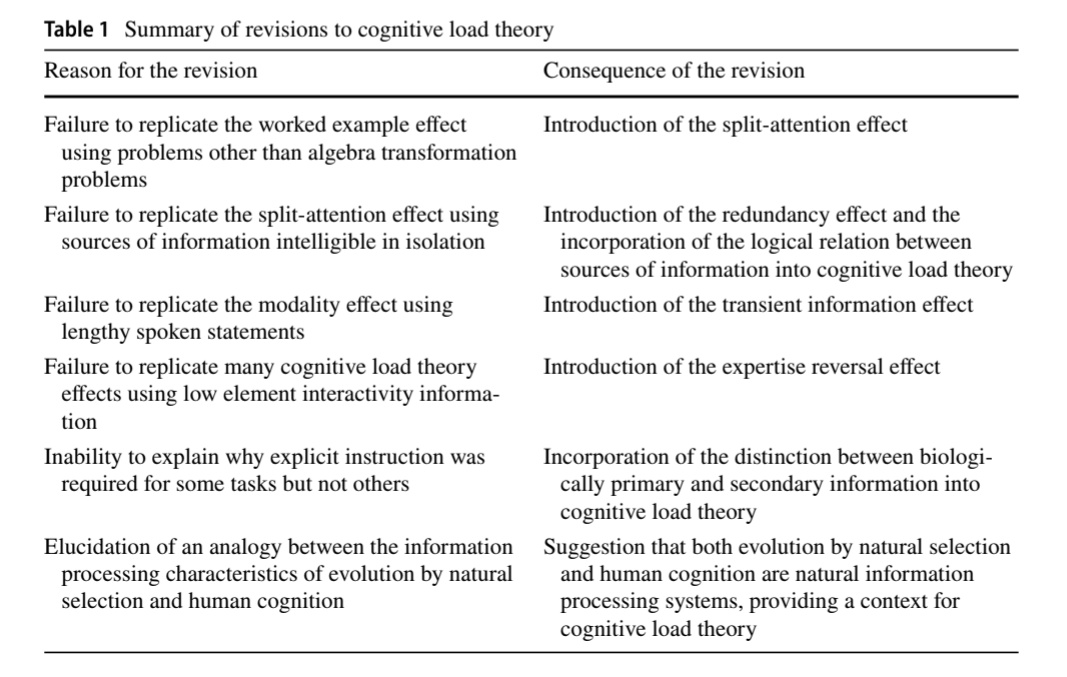These ideas have a long history.
Not a technology 'fad', but from 2015 I've been trying to get funding for some ideas around this (I'm sure others also have done so for years), incorporating principles for multimedia learning (e.g. see sciencedirect.com/science/articl…)
Not a technology 'fad', but from 2015 I've been trying to get funding for some ideas around this (I'm sure others also have done so for years), incorporating principles for multimedia learning (e.g. see sciencedirect.com/science/articl…)
https://twitter.com/cbokhove/status/1275364089586421760
Oh even 2014 for a Wellcome Trust Science Learning+ call. After that Leverhulme, EU, Nuffield. Sure, it could have been the case that the proposal wasn't as well written as others, but I'm still annoyed that the ideas seemingly didn't even get a look in.
Remember, this was six years ago, so maybe there is more movement now, but then it wasn't. The Wellcome call was about different themes, including engagement in STEM and equity.... see informalscience.org/projects/fundi… - also check the projects that were funded.
I *personally* thought (sore 'loser' I know) that the winning ideas were very much 'more of the same'. Museums. Science events. Basically the venues where many of the more disdavntaged socio-economic groups never go to any way. So....
(disclaimer...I know tweeting about original ideas risks people run with it, but after 6 years of bidding, and now seeing the ide pop up in other places any way, bit fed up any way. If you like the idea and want to do something, wouldn't mind looking into it again.)
...in the first version of the project (not funded twice) we had:
- A theme park in the UK (specifically a rollercoaster ride)
- A theme park in the US
- Augmented reality (AR supplier on-board) to teach 'forces'
- A mobile platform for delivering content (scalable other parks)
- A theme park in the UK (specifically a rollercoaster ride)
- A theme park in the US
- Augmented reality (AR supplier on-board) to teach 'forces'
- A mobile platform for delivering content (scalable other parks)
The reason to include a theme park was that they have a distinctly different audience that visits. Roller coaster rides obviously involve many forces. The mobile platform would allow any content to be accessible anywhere (using buddypress). The AR would add a multimedia layer.
Honestly, so many years back it was one of the coolest ideas I had and every time I write about it, it still is. I repeat that we HAD THEME PARKS that worked with us. WE HAD ROLLERCOASTERS.
Note this was not a school project (although later funding attempts tried that as well).
Note this was not a school project (although later funding attempts tried that as well).
But focus was on informal learning. So the stuff museums do, but then -as mentioned- tapping into other audiences.
I even made a mash-up of the ideas on padlet (see an anonymised copy here padlet.com/cbokhove/s19um…)
I even made a mash-up of the ideas on padlet (see an anonymised copy here padlet.com/cbokhove/s19um…)
Variations of proposal, with different emphases, have passed several other funders...to no avail. And every time I speak about it, people say THAT SOUNDS COOL (and useful). Yeah, it does, it wasn't even a lot of money we asked tbh. Many people liked to contribute cos it was COOL.
Of course, now we see more of these initiatives. I'm not trying to downplay their work. Just venting about years of getting an idea into action. Sure, we could still do some of the work, but as we all know, a little bit of funding is a useful 'go for it!' incentive... #rantover
• • •
Missing some Tweet in this thread? You can try to
force a refresh





